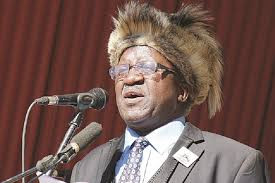
THE week was a sorrowful one for the medical profession as we lost one of the most dedicated medical practitioners, professor Kusum Nathoo.
Nathoo was a pioneer in health as a paediatrician in the country having been immensely involved in HIV and Aids research, childhood vaccination, neonatology and general training of medical students at the university.
She was a renowned author with at least 150 academic publications to her chest.
May her beloved soul rest in eternal peace!
We will forever miss our departed heroine in the medical field.
Zimbabwe boasts highly-trained medical practitioners and it is not a secret that many countries prey on the country for personnel.
Brain drain is now endemic, with countries like United Kingdom, Australia, New Zealand, Namibia, Zambia fishing from our human resources pond.
It takes between US$50 000 and US$100 000 per year to train a medical student, imagine losing all the trained doctors within days after having used close to half a million dollars in training them.
- Mavhunga puts DeMbare into Chibuku quarterfinals
- Bulls to charge into Zimbabwe gold stocks
- Ndiraya concerned as goals dry up
- Letters: How solar power is transforming African farms
Keep Reading
Our country continues to lose medical staff to greener pastures mainly because of poor domestic working conditions, where meritocracy is not rewarded.
There is virtually neither intrinsic nor extrinsic motivation among employees as the health sector remains largely underfunded in the country.
Corruption rears its ugly head in the country with at least US$2 billion said to be lost to the vice on a yearly basis.
It is quite surprising that a lot of patients continue to seek treatment outside Zimbabwe, yet the same treatment is available locally.
The return of diaspora doctors and specialists has brought global expertise into Zimbabwe’s healthcare sector.
Many of our doctors have worked in leading hospitals in countries like Russia, England, South Africa, Australia, Namibia, the United States to mention just but a few.
There are many medical procedures that can be done easily here in the country, alas, some patients still prefer to seek treatment abroad at even high costs.
This raises concerns about the rationale behind these choices and the subsequent impact on the country’s healthcare system.
Some medical aid societies are at the forefront of transferring patients to foreign countries for medical procedures that can be easily done at local healthcare facilities.
Such transfers may not be necessary as they place patients at a higher risk of complications because of long hours of travelling.
Why honestly can a maternity case be transferred to a distant country like India when the country has state-of-the-art facilities like Trauma Centre in Borrowdale, Avenues Clinic, Milton Park, Corporate 24, Pacific 24, St Annes.
Financial statistics for 2024 show that at least US$400 million dollars was spent on foreign treatment, a figure huge enough to construct at least 10 state-of-the-art healthcare facilities.
The argument is always about the cost of treatment said to be less in foreign countries than locally.
It is thus prudent for one to understand that not all medical procedures are better done out of the country as some can be better executed locally.
The country has intellect, has experienced professionals who have stood the test of time since time immemorial.
What is needed is adequate support to medical practitioners by fully capacitating them in order to maximise health service delivery.
Investing in health delivery service is key for the country if we are to achieve universal health coverage as espoused in Vision 2030.
Let us all support local medical practitioners, local healthcare facilities to develop our country.
Health and development are symbiotic in nature.
- Johannes Marisa is a medical practitioner who is the current president of the Medical and Dental Private Practitioners Association of Zimbabwe.










